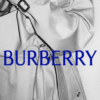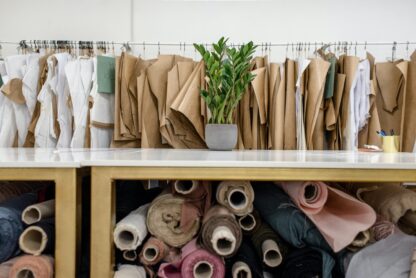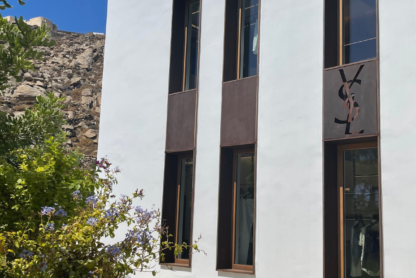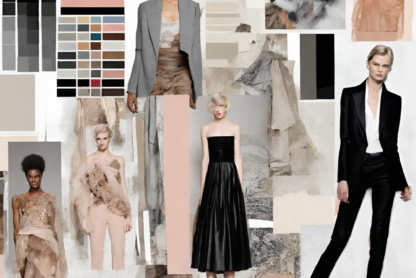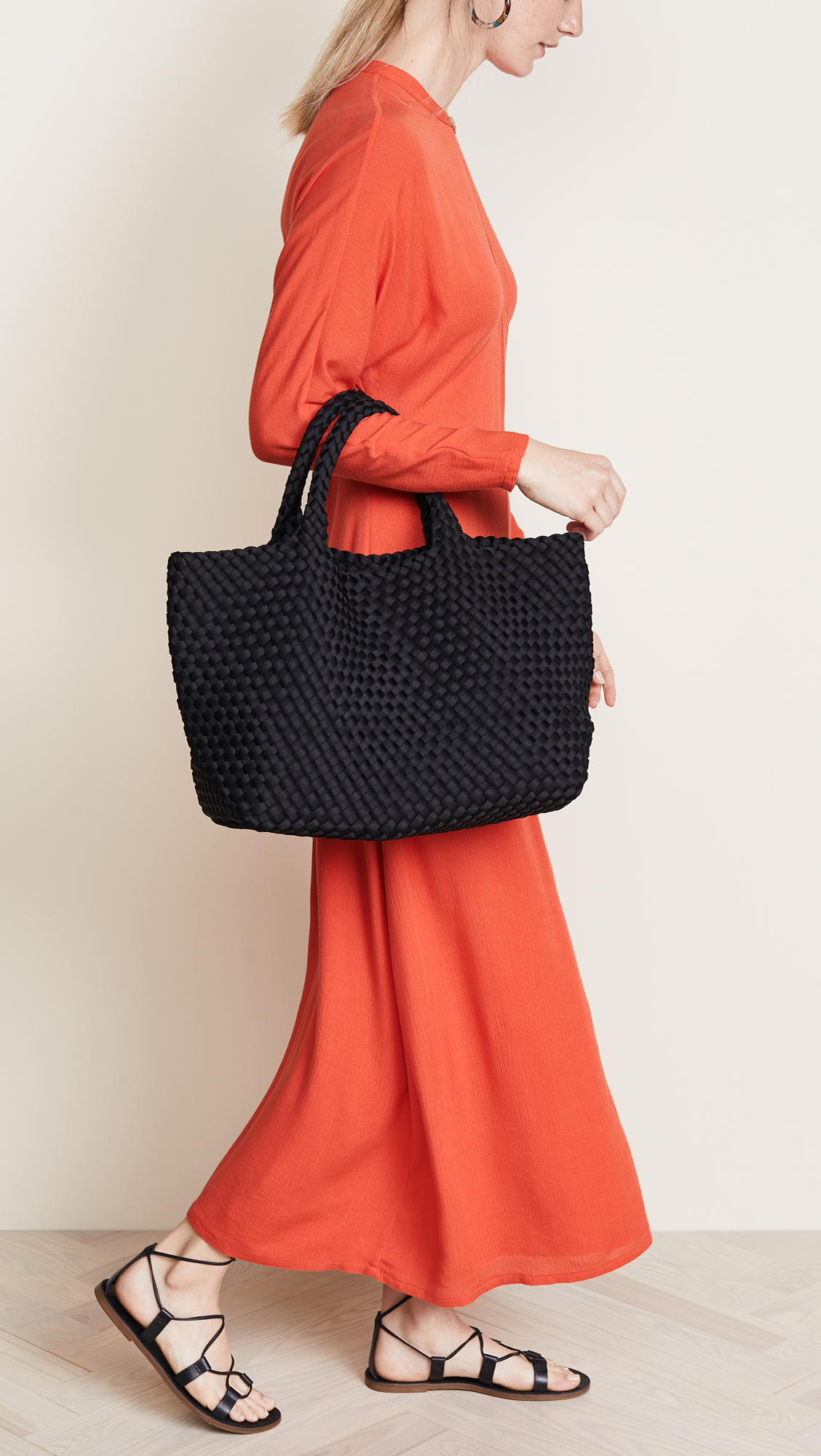Working in the fashion industry is often perceived as a glamorous and exclusive realm, reserved only for those with a fashion degree or extensive creative talent.
But despite its glamorous reputation, the fashion industry can be incredibly demanding and challenging. Long hours, tight deadlines, and intense competition are realities that professionals face daily. Behind the glitz and glamour lies a world of hard work, dedication, and resilience.
My journey in this field has taught me invaluable lessons that go beyond the conventional wisdom that I want to pass on to you as an aspiring fashion professional. I’ve been in this industry for a decade, starting as an intern at Alexander McQueen up to being a fashion educator and CEO today.
Here are 10 lessons I learned working in the fashion industry.
A fashion degree is not necessary
Contrary to popular belief, a formal fashion degree is not always a prerequisite for success in the industry. While it can certainly provide valuable skills and knowledge, many professionals find their way into fashion through alternative paths. From self-taught designers to individuals with diverse educational backgrounds, (marketing, communication, economics, law…) the industry values creativity, passion, and practical experience just as much as formal qualifications.
Fashion is a business
While creativity is undoubtedly at the core of the fashion industry, it’s important to recognize that fashion is also a business. Companies prefer hiring individuals who understand both the creative and commercial aspects of the industry. This is the case even for roles that may seem purely artistic. Having a solid understanding of business fundamentals, such as marketing, sales, and finance, can significantly enhance your value as a fashion professional. You’ll be surprised to know that even though the final output is a beautiful dress, magazine cover, or fashion show, this is not just the result of creative decisions. This is lots of planning, research, and strategic business decisions.
Push boundaries and stay curious
In a constantly evolving industry like fashion, complacency is the enemy of progress. To succeed, it’s essential to push boundaries and stay curious. Embrace experimentation, explore new techniques, and challenge conventional norms. Whether you’re a designer, marketer, or merchandiser, maintaining a spirit of curiosity and innovation will set you apart in a competitive landscape. Remember: never stop learning.
Attitude matters more than degrees
While technical skills are important, companies often prioritize hiring individuals with the right attitudes and mindset. Possessing multiple fashion degrees may impress on paper, but if you lack the right attitude, you may struggle to thrive in a collaborative and fast-paced environment. Employers value individuals who approach challenges with resilience, positivity, and a willingness to learn. Technical skills can be taught on the job, but the right mindset is invaluable.
Want an example of a skill you might not be considering? Attention to detail is one. Since when I was just an intern at Alexander McQueen, I’ve learned that excellence lies in the smallest of details. This is the case especially if you aim to work for the top luxury fashion brands. Whether assisting with fittings, inspecting garments for quality control, or contributing to the creative process or a marketing campaign, attention to detail is ingrained in every aspect of the work.
Fashion is influenced by global issues
Beyond aesthetics, the fashion industry is deeply influenced by geopolitical, social, and environmental issues. From sourcing sustainable materials to forecasting trends to navigating international trade policies, fashion professionals must navigate a complex landscape shaped by global forces. Understanding these broader contexts is essential for creating meaningful and impactful work in the industry.
People working in fashion don’t do it for the money
While financial rewards can be a motivating factor, many people working in the fashion industry are driven primarily by passion. Whether it’s the thrill of bringing a creative vision to life or the satisfaction of making a positive impact, passion fuels success in this dynamic field. Despite the challenges and uncertainties, passion keeps professionals motivated and dedicated to their craft.
What we see as outsiders to the industry most of the time are high fashion designers excelling at their craft, top fashion editors styling beautiful editorials, and famous models walking the runway. They are A-listers, the crème de la crème of the fashion industry so they are paid the most. But don’t let it cloud your judgment that everyone else, especially as a beginner, earns as much. I thus recommend you to research to have a realistic idea of the average wages. However, always choose a role in fashion you truly love.
Experience can be gained through strategic approaches
Landing a job in the fashion industry can be daunting, especially for those without prior experience. However, it’s important to recognize that everyone starts somewhere, and lack of experience should not be a deterrent. Instead of focusing solely on traditional application methods, consider alternative strategies. It includes cold emailing professionals and companies directly or trying to get informational interviews (I teach these strategies in my free webinar). Demonstrating your skills, enthusiasm, and willingness to learn can often outweigh formal experience in the eyes of employers.
Not everyone attends fashion shows and events
Just because you are going to be working in fashion this doesn’t mean that you’ll automatically attend the events organized by the brands you work for. Attending fashion events is a part of the job of people working in fashion. So, only if your role is linked to the organization of the event or the fashion show then you’ll be present there (still to work though). Behind the scenes, countless professionals are working tirelessly. They work in design studios, production facilities, and marketing offices, contributing to the broader ecosystem of fashion.
While Fashion Week may exude an aura of glamour and excitement, behind the scenes, it’s a whirlwind of non-stop activity and high-pressure deadlines. For fashion editors, attending back-to-back shows, conducting interviews, and producing real-time coverage requires stamina, organization, and the ability to thrive in fast-paced environments.
Excel is every fashion professional’s best friend
Amid creative pursuits, one might not expect to encounter spreadsheet software. However, Excel is the most used program in the fashion industry. From interns to CEOs across all departments, everyone uses it. Proficiency in Excel can greatly enhance your efficiency and effectiveness in various roles within the industry. So if you want to acquire a versatile skill that will be invaluable across different roles and steps in your career ladder, I suggest you learn Excel. In this free webinar, I share 4 Excel tricks that will impress fashion recruiters and your boss.
Professionalism is non-negotiable
In the world of luxury fashion, professionalism is paramount. From interacting with clients and colleagues to representing the brand in public settings, maintaining a high standard of professionalism is essential at all times. Upholding the brand’s reputation for excellence requires integrity, discretion, and diplomacy. Learning email etiquette as well as being kind is essential.
Professionalism extends also to punctuality, reliability, and accountability in fulfilling responsibilities and meeting deadlines. Interns are expected to demonstrate a strong work ethic and a willingness to go above and beyond in their roles, embodying the brand’s commitment to excellence in every endeavor.
When you immerse yourself in the fascinating world of fashion, you also discover aspects you haven’t considered. So I hope this article provided you with insights that will prepare you to face the realities and challenges of the fashion industry even before you land a job or internship. So that you can embark on your fashion career adventure with confidence, clarity, and foundational knowledge that will lay a path to success.
If you are new to the fashion industry and don’t know where to begin, start from my free webinar where I share 5 strategies to secure your dream role and break into fashion (even if you have no experience!). You can register here.
Follow me on Instagram for more updates.


